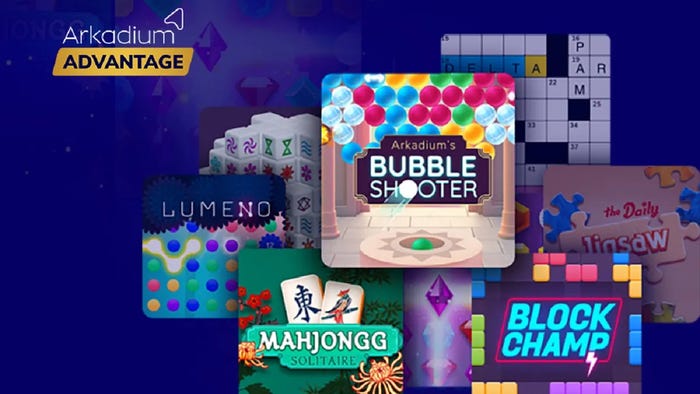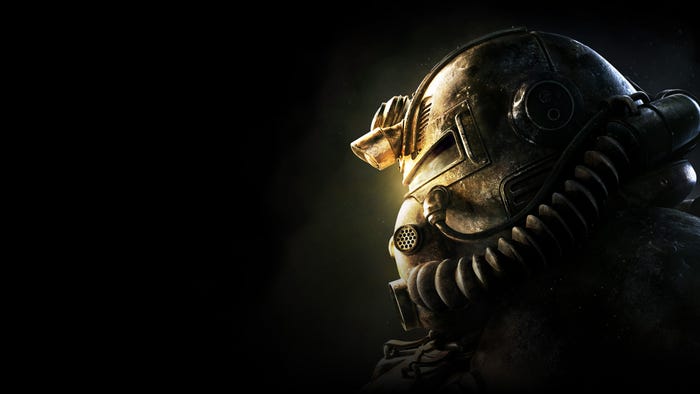You could say enduring BBC Micro title Qwak is a testament to human perseverance -- Gamasutra quizzes programmer Jamie Woodhouse on his 20 year odyssey to develop new versions and conversions of the game.

Qwak may seem a simple game about a duck grabbing snacks and items while pelting enemies with eggs, but that duck has something most game characters never attain: nearly 20 years on the market. Starting off on the BBC Micro computer in 1989, Qwak has outlasted Bubsy, Aero the Acrobat, Alex Kidd, Titus the Fox, the Battletoads, and countless other animal heroes who had far more expensive games and far bigger marketing pushes. Qwak’s longevity is the work of Jamie Woodhouse, the programmer who first assembled the colorful duck’s original 80-level game. Over the past two decades, Woodhouse has made Qwak an Amiga and Amiga CD 32 title, a limited-edition Game Boy Advance homebrew, and, most recently, a downloadable PC version. With Qwak turning 20, we asked Woodhouse about the game's history and just how it’s weathered two decades: What were your influences in creating Qwak back in 1989? Did you intend for it to have any connection to Atari's similarly named arcade shooting game? Jamie Woodhouse: I guess playing games myself on the BBC and in the arcades. Games like Frak, Monsters, Blagger, and, of course, Bubble Bobble in the arcades. Bubble Bobble wasn’t a big influence for Qwak, though, of course, it’s an amazing, classic game and Qwak always seems to get compared with it. As for the Atari game, Qwak! Well, it was pure coincidence, no connection at all. They spelled the name the same way I did, only with an exclamation mark on the end. But really, I just made the name "Qwak" up myself too. Honest, guv! You've been the sole owner of Qwak's IP for almost 20 years, right? How do you think the game industry has changed when it comes to cute characters like Qwak and the games that star them? JW: Yes, that’s right, I’m the sole owner of the Qwak IP. The change most obvious to me is how marketing has become more and more important. Back when I started making games, and all through those early years, games would sell on the basis of their own merit. Today, things are very different; marketing plays a major role in determining a game's (commercial) success. And the game character often plays a big role in the marketing materials. Aside from that, game characters are more sophisticated, better looking (oh, apart from Qwak, the best looking game character of all time) and there’s more animation, etc. In your 25 years of programming games, what's the biggest change you've seen in the way they're made? JW: Computers today have a lot more processing power; and game coders can allow graphics cards do most of the donkey work for them. Back in the early days we used to code games in 100-percent assembler, and there was a real need to optimize your code, do clever tricks and squeeze out every last drop of what little processing power there was on target hardware. There isn’t the same focus at that ‘nitty gritty’ level today, the focus just shifted elsewhere. Game developers today have to think about other things...like marketing. Also, development environments themselves are a lot nicer today; an analogy would be working on a car (doing mechanical work) while it’s perched up on bricks in your driveway. Compare that to several car mechanics working in a fully kitted out garage with all the modern equipment under the sun. What was the best thing about making games back when Qwak first came out? What was the worst? JW: Everything was so new and fresh. You had to do it all yourself (assembler functions for software sprites and scrolling, etc.), and there was so much virgin territory to discover.One of the real great things back then was how you could make original games yourself, and if they were good, they’d sell. There was none of this licensed IP nonsense. The worst thing? Hard to say! I have so many good memories. Perhaps one thing that wasn’t so good was the lack of information; there was no internet back then and you had to either work things out yourself (trial and error) or go visit a book-shop! Today, while there are some awesome games around, I think a lot of games are pretty abysmal, and clearly made with little or no care, love, and attention to detail, and it’s often licensed IP games that fall into this category. People don’t seem to be making games for the love of it so much these days. I dunno, maybe it’s just me living in the past? Also, I want to say it again, there are some awesome games around today, and you can see, just from looking at them, the love, care and skill that’s gone into the making of them. Is it true that you tried to get an official publisher for the Game Boy Advance version of Qwak? If so, what was the process like? Is it harder for games like Qwak to get publishers today than it was in the days of the Amiga and BBC? JW: Yes, and I did have a few interested parties, but in the end; nothing came of it, and I decided to self-publish. But, if you compare the GBA version of Qwak to some of the games that are available on GBA today, well, you’ll have to draw your own conclusions there! Yes, I think it’s a lot harder getting published today; and probably not a good idea to develop a game on a speculative basis, in the hope or expectation that someone will want to publish it. Though I guess a lot would depend on the game, and what platform it runs on. On a related note, do you think the currently popularity of simple online games like Bejeweled has given Qwak more attention? Was that a factor in your decision to create a PC version? JW: No, and there’s a whole bunch of casual games like Bejeweled, and the typical audience for such games is quite different to the kind of person who loves playing Qwak. The big portals are not helping me at all. In fact, I contacted one or two to discuss selling Qwak for the PC via their sites, and they didn’t have the courtesy to even reply; a simple “nice game, but not suitable for our typical customer” would have been nice! Then again, they’re big business, and I’m just mister little guy. I decided to create Qwak for the PC because it was a very accessible and open platform. I knew I could make the game, set up a site, and self-publish. Qwak looks different with each version. How do you go about deciding what to change in the game's graphics? JW:I don’t really have an agenda as such. I just do the best I can with the skills and equipment I have. The process for making the PC version sprites was quite technical and involved creating them over-sized, in an 8-bit art package, and then scaling them down to get all the lovely anti-aliasing on the edges. It’s a low-tech approach, but it’s just an example of me doing the best I can with what I have. Also, I should point out that I did pretty much everything in the game myself: code, design, level design, graphics, development of tools, etc. I was spreading myself quite thinly there, and dividing my time and energy between a lot of tasks, which turned out to be both a good and a bad thing.. Aside from the visuals, how does the PC version of Qwak differ from the older versions? JW:The PC version has pretty much everything the Amiga/GBA version does, and a whole lot more too. There are secret hidden bonuses, more things to pick up, different colored switches and trap walls you can open. Different colored keys and gates to unlock, also corresponding colored treasure chests to open (goodies spray out of them). There are a few more magic potions that do different things. The flying potion now gives you little jet boots, rather than the helicopter hat. Some of the levels have more of a puzzle emphasis to them. Different kinds of eggs you can collect and throw, including dino eggs and Chico eggs (oh no, they were in the Amiga and GBA versions too). A whole bunch of new stuff. What are you currently up to now that Qwak's out for the PC? Will you ever make a sequel? JW: Currently, I’m putting my resume together and will be looking for work. Hopefully I will find a company where my skills and experience will be a good match, and I can make a valuable contribution, make fantastic games and enjoy doing it! It’s not just the fact that I’m skint. I really want to share the creative process. I’ve always kind of been a loner and had control and done my own thing, but I really want to change that and still make fun games of course! As for Qwak, there’s a few things I could do with it, like the introduction of a level editor, allowing people to create and share their own levels or a sequence of levels. They’ll be able to upload them to the site and rank them, etc. All should help to generate a community around the game. In terms of taking the game to the next level, I thought having some bigger scrolling levels could be quite cool, with more emphasis on puzzle-solving and doing things in just the right order. Also, to have some bigger levels with some rooms darkened out that light up as you discover them, so it’s more of an adventure or exploration-type game. Also, more monsters and fundamental changes in the way the monsters work. Oh, and porting the game to other platforms... now there’s an idea...
About the Author(s)
You May Also Like









